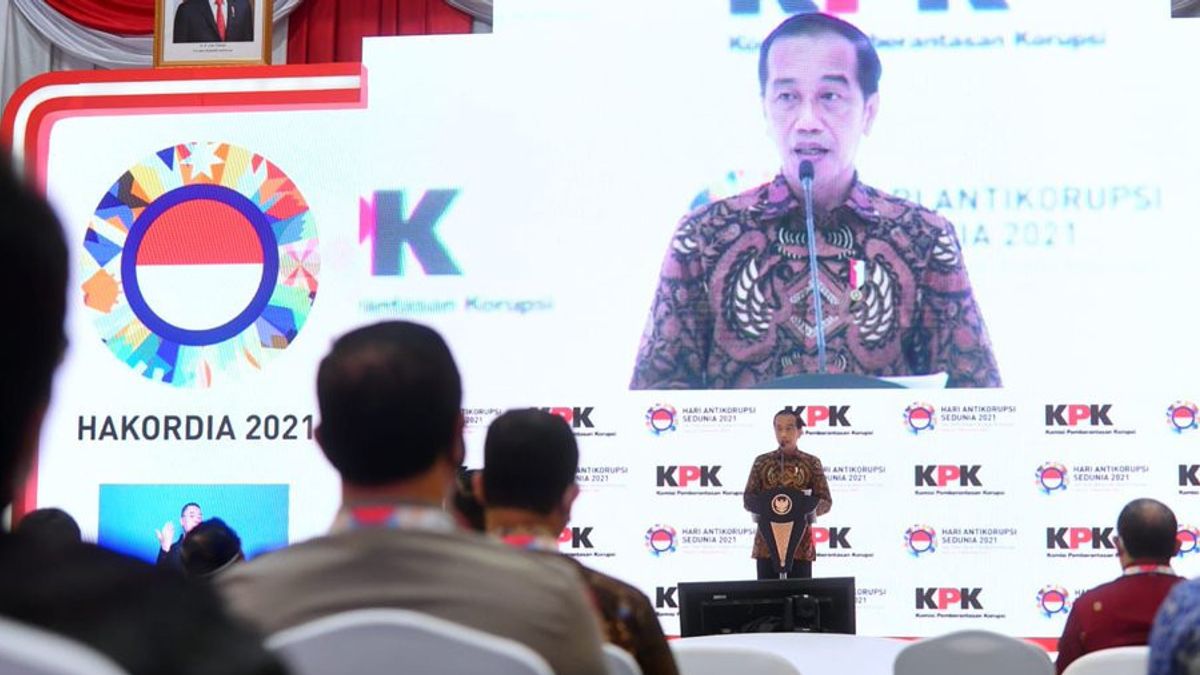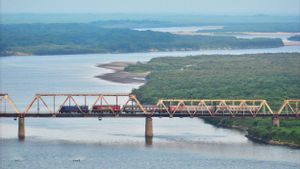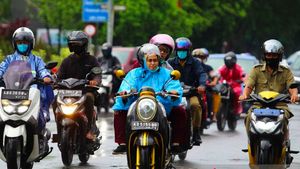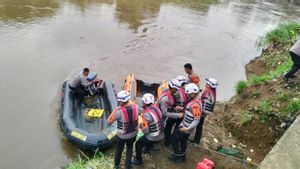JAKARTA - When delivering a speech on World Anti-Corruption Day (Hakordia) 2021, Chairman of the Corruption Eradication Commission (KPK) Firli Bahuri said President Joko Widodo (Jokowi) is the leader or conductor of the corruption eradication orchestra. However, Indonesia Corruption Watch (ICW) considers the former governor of DKI Jakarta to have failed to carry out his role.
Firli Bahuri said President Jokowi is a conductor or orchestra leader in efforts to eradicate corruption in the country. He hopes that the steps to suppress rioting can be carried out well. "We sincerely hope and thank Mr. President. Mr. President is the leader of the corruption eradication orchestra," Firli said in his remarks at the 2021 Hakordia commemoration at the KPK Red and White Building, Kuningan Persada, Jakarta. South, Thursday, December 9. Firli said Jokowi is the cornerstone to solve corruption in Indonesia. The former Deputy for Enforcement of the KPK also hopes that the corruption eradication orchestra can be eliminated indiscriminately. "Why do we say that because it is in the hands of the president that we hope that we can eradicate corruption. We can eliminate corruption, we can eliminate bribery, and there is no more culture of corruption. ," he said. "Through the orchestra led by the president, we sincerely hope that legislative powers, judicial and executive powers stay away from perpetrators of corruption," added Firli.
Equally analogous to being a leader in efforts to eradicate corruption, ICW considers Jokowi as the great commander. However, he was deemed to have failed in his role.
"It can be said that the president has failed to become the commander-in-chief of the corruption eradication agenda," said ICW Coordinator Adnan Topan Husodo in a written statement.
This failure was seen after President Jokowi put aside the agenda of eradicating corruption. Adnan said, from the aspect of law enforcement, many policies and decisions taken did not support efforts to eradicate corruption.
"For example, the decision of the Constitutional Court which rejected the judicial review of the KPK Law, the abolition of the requirement for tightening remissions for perpetrators of corruption by the Supreme Court, and light sentences for corruption cases involving political officials," he said.
Not only that, the agenda for strengthening the KPK is also considered far from being burnt. This, continued Adnan, as evidenced by the political policy of revising the KPK Law, the election of a problematic KPK leader, and the reckless dismissal of Novel Baswedan et al through the National Insight Test (TWK).
All of these steps, Adnan said, reflect evidence of weakening anti-corruption rather than strengthening. "Unfortunately, the president did not take meaningful action, despite recommendations from state institutions such as the Ombudsman and Komnas HAM who found serious violations of the KPK TWK," he said.
Furthermore, Adnan also said the dimming of political policies to strengthen efforts to eradicate corruption can be seen from the politics of national legislation. He said that a number of important regulations such as the Draft Law on Asset Confiscation, the Draft Law on Limiting Currency Transactions, and the Revision of the Law on the Eradication of Corruption Crimes were never included in priority national legislation programs.
"The decline in efforts to eradicate corruption has resulted in the worsening of the ethical management of public officials. The practice of concurrent public office, the merging of political and business interests, such as conflicts of interest for officials in the PCR business and drugs in handling the COVID-19 pandemic are concrete evidence of weakening governance," he said. "explained Adnan.
With this condition, ICW said that World Anti-Corruption Day should be celebrated without a big ceremony but with sadness. The reason is that people now have to realize that high hopes for the state to eradicate corruption are just a dream.
"Corruption always sacrifices us as citizens, the momentum of this World Anti-Corruption Day can be a turning point in the community's resistance to corruption. Let's strengthen our voice, let's strengthen our role to fight corruption," concluded Adnan.










